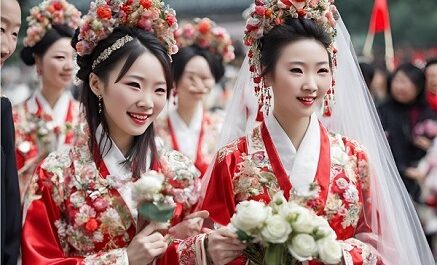Learn Chinese Idiom with Pinyin and English
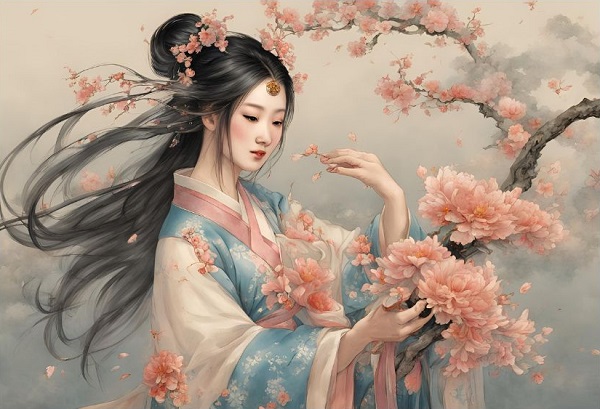
- Idiom in Chinese-天女散花。
- Pinyin of Idiom– tiān nǚ sàn huā.
- Idiom’s Meaning in English– It refers to a scene where flowers are scattered, often used metaphorically to describe something beautiful or joyful, like a celestial maiden scattering flowers.
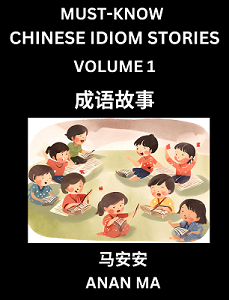
Chinese Idiom Stories Books (HSK All Levels):
- Books to Learn Chinese Idiom Stories (Part 1)
- Books to Learn Chinese Idiom Stories (Part 2)
- Books to Learn Chinese Idiom Stories (Part 3)
Learn Chinese Idiom Story in English (成语故事的英文)
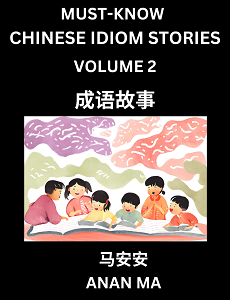
According to an ancient legend, there was a beautiful celestial maiden who took care of various gorgeous flowers in the heavens. One day, she received an order to scatter the flowers of heaven upon the earth, to celebrate a special day. Carrying a basket full of fresh flowers, the celestial maiden gently waved her hand, and colorful petals rained down like snowflakes, blanketing the entire world. People were pleasantly surprised and joyful when they witnessed this scene, and they thanked the celestial maiden for her bounty. Since then, the phrase “celestial maiden scattering flowers” has become a symbol of beauty and harmony.
Learn Idiom Story in Chinese (成语故事)
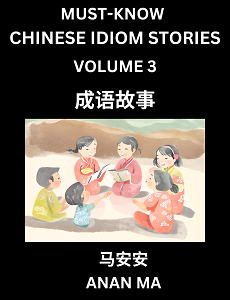
在古老的传说中,有一位美丽的天女,她负责在天上照顾各种美丽的花朵。有一天,她接到了命令,需要将天上的花朵洒向人间,以庆祝一个特别的日子。天女带着满篮的鲜花,轻轻一挥,五彩斑斓的花瓣就如同雪花般飘落下来,覆盖了整个世界。人们看到这一幕,都感到非常惊喜和快乐,纷纷感谢天女的恩赐。从那以后,“天女散花”就成了美好、祥和的象征。
Learn Keywords with English, Simplified Chinese Characters, and Pinyin (关键词)
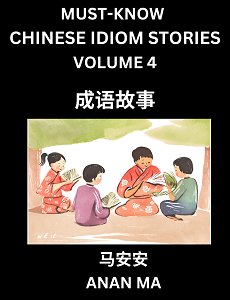
天女 (tiān nǚ): celestial maiden
散花 (sàn huā): scatter flowers
传说 (chuán shuō): legend
五彩斑斓 (wǔ cǎi bān lán): colorful
覆盖 (fù gài): cover
Pinyin of Idiom Story (故事的拼音)
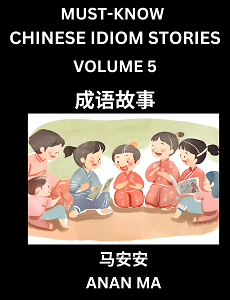
Zài gǔlǎo de chuánshuō zhōng, yǒuyī wèi měilì de tiānnǚ, tā fùzé zài tiānshàng zhàogù gè zhǒng měilì de huāduǒ. Yǒu yītiān, tā jiē dàole mìnglìng, xūyào jiāng tiānshàng de huāduǒ sǎ xiàng rénjiān, yǐ qìngzhù yīgè tèbié de rìzi. Tiānnǚ dàizhe mǎn lán de xiānhuā, qīng qīng yī huī, wǔcǎi bānlán de huābàn jiù rútóng xuěhuā bān piāoluò xiàlái, fùgàile zhěnggè shìjiè. Rénmen kàn dào zhè yīmù, dōu gǎndào fēicháng jīngxǐ hé kuàilè, fēnfēn gǎnxiè tiānnǚ de ēncì. Cóng nà yǐhòu,“tiānnǚ sàn huā” jiù chéngle měihǎo, xiánghé de xiàngzhēng.

